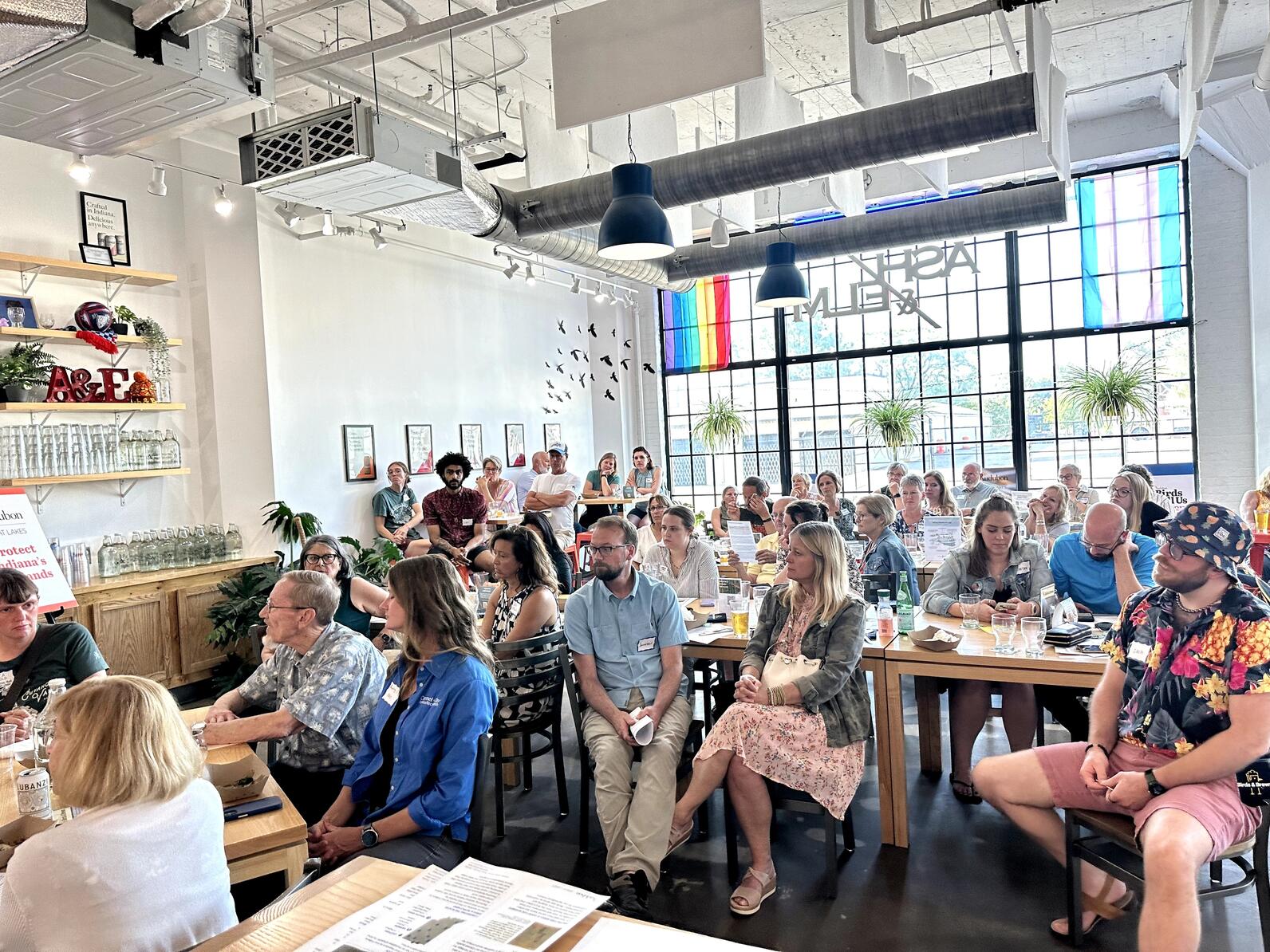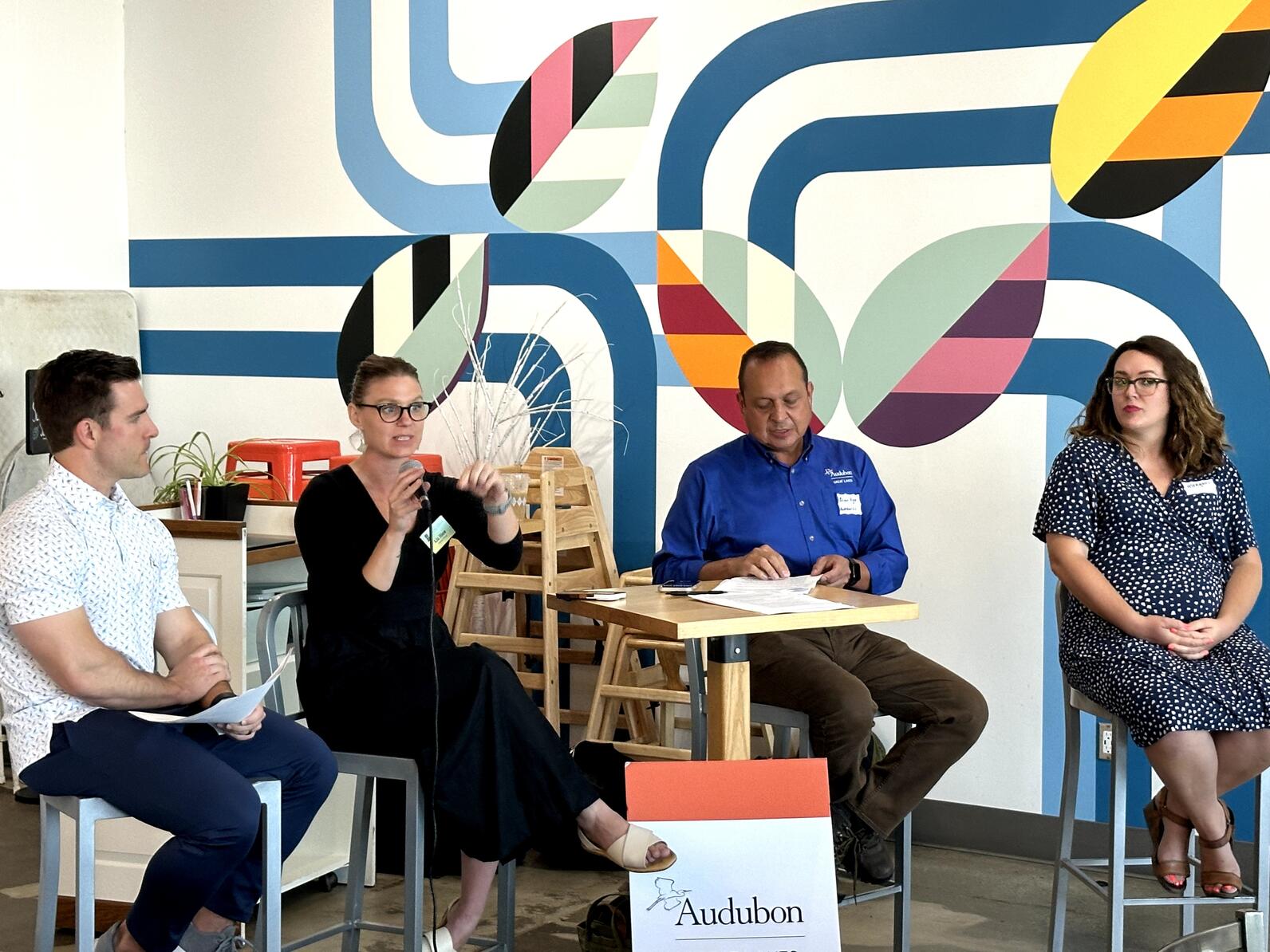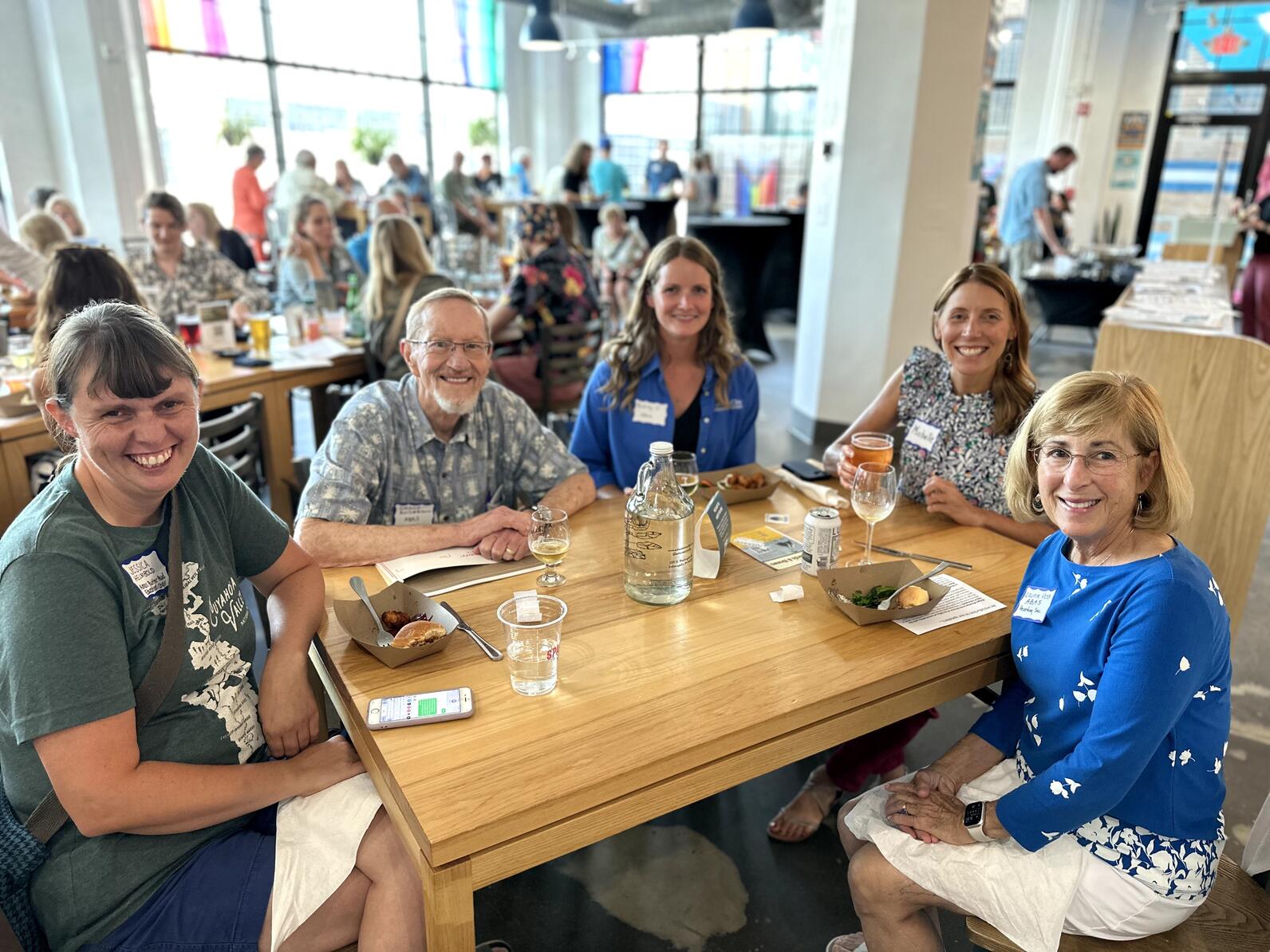INDIANAPOLIS (August 29, 2024) – From habitat loss to the rollback of protections for state wetlands, Indiana’s birds are at-risk. On Monday, during World Water Week, 90 Indianapolis residents gathered at Ash & Elm Cider Co. in Indianapolis for Birds & Brews. The event, hosted by Audubon Great Lakes and Amos Butler Audubon Society, welcomed local leaders and policy experts for a discussion on opportunities to advance policy solutions to protect birds and other wildlife.
“It’s fall migration – a beautiful but dangerous time in the life of birds, whose survival is at increased risk from loss of Indiana’s wetlands and our changing climate,” said Brian Vigue, Policy Director of Freshwater for Audubon Great Lakes. “We can protect birds by enacting strong wetlands protections and expanding renewable energy solutions. We’re grateful to Audubon members and Indiana residents who gathered to share their passion for protecting Indiana’s most vulnerable species.”

Indiana ranks fourth among states with the greatest loss of wetlands. This loss has contributed to a significant decline of Great Lakes populations of breeding marsh birds over the past 30 years, including species like the state-endangered American Bittern and Marsh Wren. Additionally, two-thirds of North American birds are at-risk of extinction from climate change.
The event included a panel discussion from environmental and policy experts Morgan Mickelson, Director of Sustainability for the City of Indianapolis, Liz Rice, Executive Director for the Indiana Association of Soil and Water Conservation Districts and Brian Vigue, Policy Director of Freshwater for Audubon Great Lakes. The panel was moderated by Adam Forrer, Policy Director of Climate for Audubon Great Lakes.

Wetlands are not only important habitat for birds and wildlife, but they also hold an incredible amount of water, helping to buffer communities from flooding. Audubon Great Lakes is working to directly restore 420 acres of high-priority wetlands in Northwest Indiana. Over the next decade, Audubon aims to positively impact 5,750 acres across the state in partnership with various stakeholders. In addition, Audubon is working to advocate for legislation that would restore and conserve wetlands and undertake other proactive strategies before flooding events occur.
“Wetlands provide value that no other ecosystem can, and their conservation is critical for wildlife and the quality of life of Hoosiers,” said Liz Rice, Executive Director for the Indiana Association of Soil and Water Conservation Districts. “We need strong policy incentives for private landowners to conserve our wetlands and other natural areas for the wildlife and communities that depend on them.”
Polling released by Audubon Great Lakes found that 94 percent of Indiana voters believe that state leaders should either strengthen or maintain Indiana’s current wetlands protections, and nearly three-quarters of voters (74 percent) favor expanding the use of renewable energy sources.
“Advancing renewable energy solutions, like solar and wind, is needed to ensure quality of life for our communities, and protect our state’s beloved wildlife,” said Morgan Mickelson, Director of Sustainability for the City of Indianapolis. “Together, we can create a more resilient Indianapolis. I’m energized by the room tonight, which is filled with Audubon members and Indianapolis residents who are eager to advance solutions to climate change.”

In January, Audubon Great Lakes and its members mobilized in support of wetlands protections and conservation at Advocacy Day at the Indiana Statehouse. Chuck Anderson, President for Amos Butler Audubon Society, attended the event alongside Audubon members to meet with Indiana lawmakers.
“Amos Butler Audubon Society has a long and successful history of championing the causes of birds in Central Indiana,” said Anderson. “As a continuation of this advocacy, we’re proud to partner with Audubon Great Lakes on this event to learn about opportunities to protect the birds we love, and the places they call home.”
About Audubon Great Lakes
Audubon Great Lakes is a regional office of Audubon, learn more at gl.audubon.org and follow us on Facebook, Twitter and Instagram.
The National Audubon Society protects birds and the places they need, today and tomorrow. Audubon works throughout the Americas using science, advocacy, education, and on-the-ground conservation. State programs, nature centers, chapters, and partners give Audubon an unparalleled wingspan that reaches millions of people each year to inform, inspire, and unite diverse communities in conservation action. A nonprofit conservation organization since 1905, Audubon believes in a world in which people and wildlife thrive.



